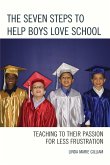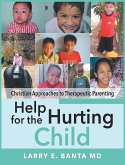`The book is concise and persuasive. The evidence presented in it does indicate that in certain circumstances the approach can be highly successful. It is a useful resource for those schools re-evaluating their policy documents on bullying and a valuable training resource for those involved in teacher education. It will certainly provoke debate in staff rooms and lecture theatres alike' - Maggie Bowen, North East Wales Institute of Higher Education You have probably heard of the 'No-Blame-Approach' to bullying. The method was featured in the BBC 2 documentary 'I Just Want it to Stop!', broadcast in August 1997. This book is the only comprehensive account of the 'No-Blame-Approach', and describes its development. The book is supported by accounts from teachers, psychologists and parents describing their experiences using the method with children and young people in both primary and secondary settings. The latest edition of this book includes a reference to the research carried out by Sue Young in Hull, confirming the effectiveness of the No Blame Support Group Approach. This is an essential read for every school intending to evaluate its anti-bullying policy and implement positive procedures.
Hinweis: Dieser Artikel kann nur an eine deutsche Lieferadresse ausgeliefert werden.
Hinweis: Dieser Artikel kann nur an eine deutsche Lieferadresse ausgeliefert werden.








